Repressed Anger | Definition, Signs, Causes, Symptoms & How to Release it!
Repressed anger is a silent force that can damage mental, emotional, and physical well-being. Unlike visible outbursts of rage, repressed anger simmers beneath the surface, often going unnoticed until its effects manifest in unexpected ways.
For many Americans, expressing anger is unacceptable, leading people to bottle up their feelings instead of addressing them.
This unexpressed anger doesn’t just disappear; it settles deep within, impacting relationships, productivity, and even overall health.
Studies suggest that unresolved anger can lead to issues like anxiety, depression, and chronic stress. Physically, it may contribute to problems like high blood pressure, headaches, or digestive disorders.
Despite these consequences, many individuals may not even realize they’re dealing with repressed anger. Instead, they might label themselves as “frustrated,” “overwhelmed,” or “numb,” without connecting these emotions to their hidden anger.
The good news? Understanding and addressing repressed anger is possible. You can take the first step toward healthier emotional expression by learning to recognize the signs—such as frequent irritability, passive-aggressive behavior, or a tendency to avoid conflict.
Addressing repressed anger, whether through self-reflection, communication skills, or seeking professional support, can unlock greater emotional freedom and peace of mind.
Let’s explore repressed anger, how to identify it, and the steps to release it constructively.
What is Repressed Anger?
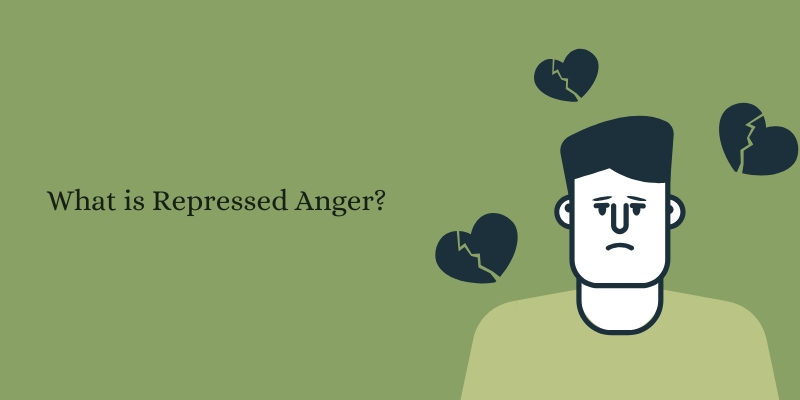
Repressed anger refers to feelings of frustration, resentment, or rage that are unconsciously suppressed rather than expressed.
Unlike overt anger, which is easily recognizable, repressed anger is hidden beneath the surface, often unnoticed even by the individual experiencing it.
This type of anger may develop when someone is taught directly or indirectly that expressing anger is wrong or unacceptable.
Over time, these suppressed emotions can accumulate, manifesting physically and emotionally.
Repressed anger can influence how individuals think, behave, and interact with others. It may show passive-aggressive behavior, chronic irritability, or physical symptoms such as headaches, muscle tension, or digestive issues.
For example, you might snap at loved ones over minor inconveniences or feel exhausted without a clear reason.
These subtle signs often point to unresolved emotions that have been pushed down instead of processed.
The root causes of repressed anger vary but often stem from past experiences, such as growing up in an environment where expressing emotions was discouraged.
Social pressures, personal insecurities, or traumatic events can also contribute. Understanding and identifying repressed anger is a crucial step toward emotional healing.
By recognizing its presence, individuals can address these feelings in a healthy, constructive way, leading to better relationships and overall well-being.
Signs of Repressed Anger
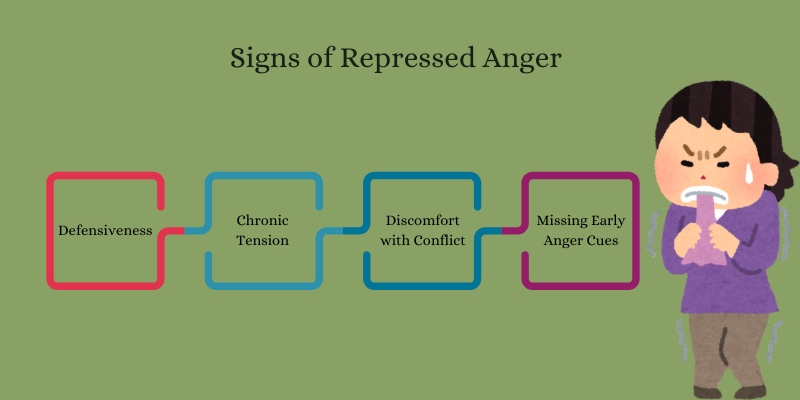
Repressed anger often manifests in ways that are not immediately recognizable as anger. When emotions like frustration, resentment, or rage are buried deep, they can affect your thoughts, behaviors, and physical health in subtle ways.
People with repressed anger may appear calm on the surface, but their suppressed feelings often emerge indirectly, such as through passive-aggressive behavior, chronic stress, or an inability to handle conflict effectively.
Recognizing the signs is the first step in addressing and managing repressed anger. Below are key indicators:
1. Defensiveness

A defensive attitude is a hallmark of repressed anger. Individuals may respond to criticism or perceived slights with an exaggerated need to justify or protect themselves.
For example, if someone points out a mistake, a person with repressed anger might overreact, feeling attacked even when no harm is intended.
This defensiveness stems from unresolved anger bubbling beneath the surface, making even minor feedback feel like a personal threat. Over time, this pattern can strain relationships and hinder personal growth.
2. Chronic Tension
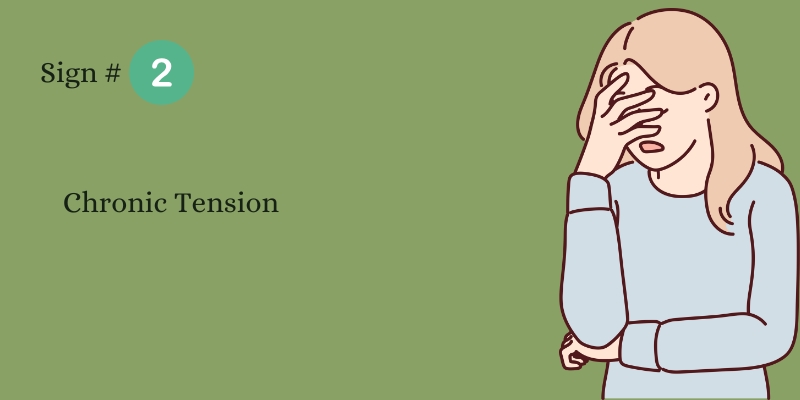
Repressed anger can manifest physically as chronic tension, including tightness in the shoulders, neck, or jaw.
Stress-related conditions like headaches, fatigue, or gastrointestinal issues are also common. These physical symptoms occur because unprocessed anger activates the body’s stress response, leading to prolonged periods of physiological strain.
Without addressing the underlying emotions, this tension can contribute to more severe health problems.
3. Discomfort with Conflict
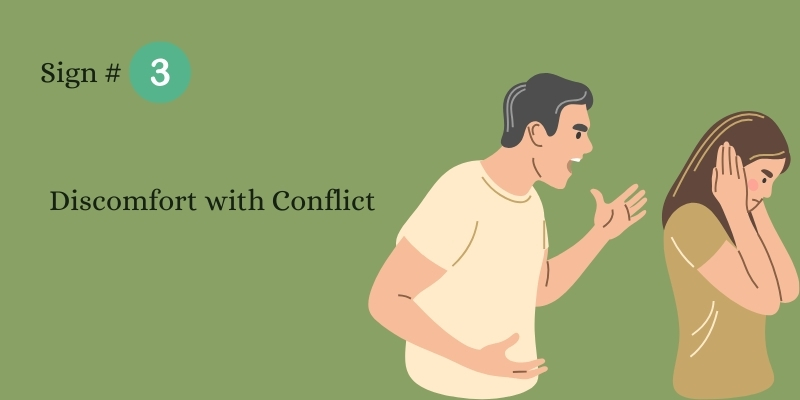
Avoiding conflict is another sign of repressed anger. People who struggle with this may go to great lengths to maintain harmony, even at their own expense. They might avoid addressing issues directly, fearing confrontation or upsetting others.
While this may temporarily keep the peace, unresolved conflicts can lead to resentment, further fueling repressed anger and emotional exhaustion.
4. Missing Early Anger Cues
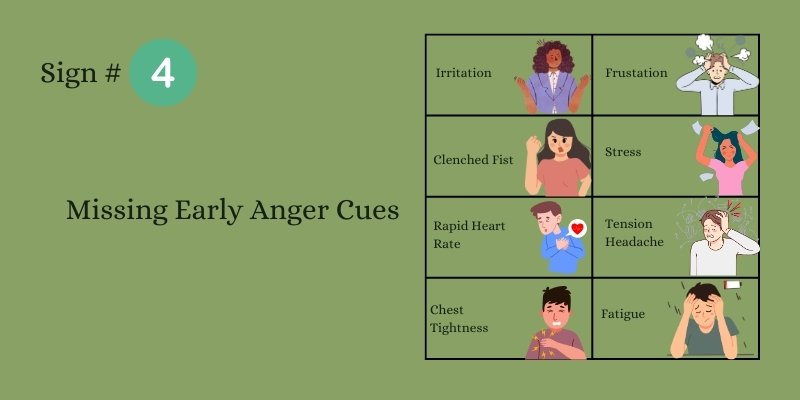
Individuals with repressed anger often fail to recognize when they are becoming upset. They may dismiss signs of irritation or frustration, only to find these emotions resurface later in unhealthy ways.
For instance, they might lash out unexpectedly or feel inexplicably anxious. Recognizing and acknowledging these cues is vital for preventing anger from building up over time.
Understanding these signs can help you identify if repressed anger affects your life. Once you become aware, you can begin exploring strategies to process these emotions.
Causes of Repressed Anger
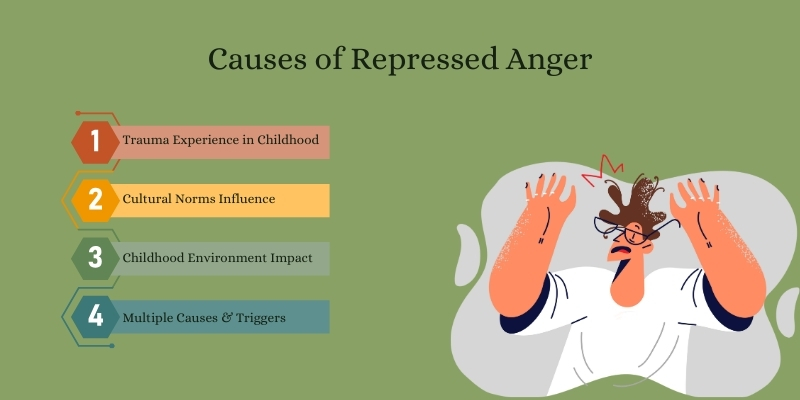
Repressed anger often stems from experiences, environments, and societal influences discouraging emotional expression.
Unlike overt anger, expressed openly, repressed anger is buried deep within the psyche, often without the individual realizing it.
Understanding its root causes is crucial for addressing its impact. Below are some of the primary contributors:
1. Trauma Experience in Childhood
Childhood trauma, such as abuse, neglect, or bullying, can lead to repressed anger. Children exposed to such situations may lack the emotional tools to express their feelings, especially if their environment discourages or punishes emotional outbursts.
For example, a child shamed for showing anger may internalize those feelings rather than risk disapproval.
Over time, these unprocessed emotions can become deeply ingrained, manifesting as repressed anger that affects their relationships and self-perception.
2. Cultural Norms Influence
Cultural expectations often dictate how individuals should express emotions. In many societies, anger is seen as inappropriate or even taboo, especially for certain groups like women or children.
This can pressure individuals to suppress their anger to conform to societal standards.
For instance, phrases like “be polite” or “don’t raise your voice” may teach people to equate anger with disrespect or weakness, leading them to bottle up their feelings instead of addressing them constructively.
3. Childhood Environment Impact
A child’s upbringing plays a significant role in learning to manage emotions. Growing up in a household where emotions are ignored, dismissed, or ridiculed can cause individuals to suppress their anger.
For instance, parents who avoid addressing conflicts or show disdain for emotional expression indirectly teach their children to do the same. This behavior can persist into adulthood, where expressing anger feels unnatural or even frightening.
4. Multiple Causes & Triggers
Repressed anger often arises from a combination of factors. A person might experience cultural pressures, trauma, and a suppressive upbringing simultaneously, compounding the difficulty of expressing anger.
Triggers such as chronic stress, unresolved conflicts, or being in environments where anger isn’t safe to express can exacerbate the issue.
This complexity makes repressed anger challenging to recognize and address without targeted efforts like therapy or anger management exercises.
By identifying these root causes, individuals can take the first steps toward understanding and processing their repressed anger, leading to healthier emotional expression and improved mental well-being.
Symptoms of Repressed Anger
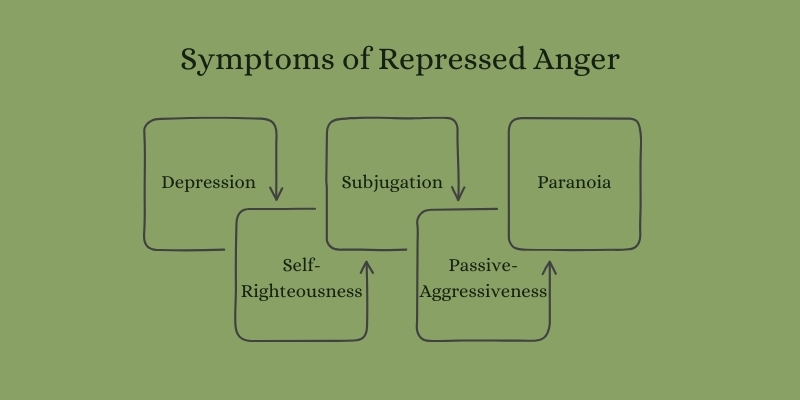
Repressed anger can manifest in subtle yet pervasive ways, often affecting a person’s emotional, mental, and physical well-being.
Unlike openly expressed anger, repressed anger lingers beneath the surface, influencing behavior and interactions without the individual realizing its source.
Understanding these symptoms can help identify and address unresolved emotional issues. Below are some common signs of repressed anger:
1. Depression

Repressed anger is often linked to depression. When bottled up rather than expressed, emotions can turn inward, creating feelings of sadness, hopelessness, or despair.
For instance, individuals might feel unmotivated or exhausted without a clear reason, which can be traced back to unresolved anger.
Depression stemming from repressed anger often comes with rumination—dwelling on past events that caused frustration but were never addressed.
Recognizing this link can help individuals explore whether unacknowledged anger contributes to their emotional state.
2. Subjugation
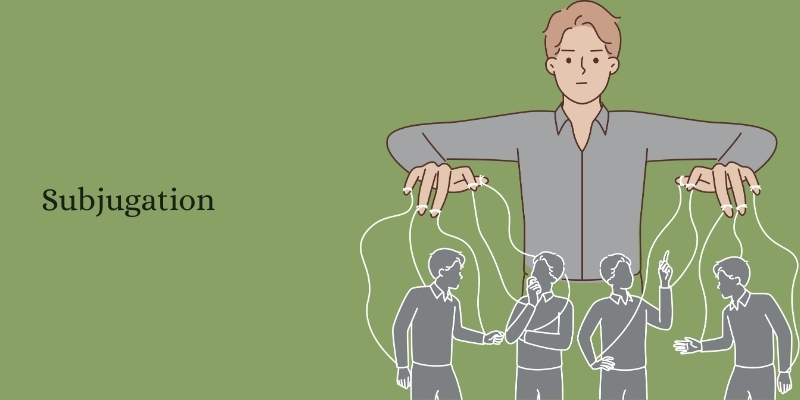
People with repressed anger may frequently prioritize others’ needs over their own, often to their detriment. This subjugation occurs because they fear conflict or disapproval and suppress their feelings to maintain harmony.
For example, they might agree to something they dislike to avoid confrontation, leading to resentment.
Over time, this constant suppression can result in feelings of being undervalued or taken advantage of, further fueling repressed anger.
3. Paranoia

Repressed anger can lead to heightened sensitivity to others’ actions, sometimes manifesting as paranoia. Individuals might feel that others are out to get them or are intentionally trying to hurt or undermine them.
This reaction often stems from unresolved internal frustration projected onto external situations.
For example, someone with repressed anger might interpret neutral comments as personal attacks, which can strain relationships and create unnecessary stress.
4. Self-Righteousness
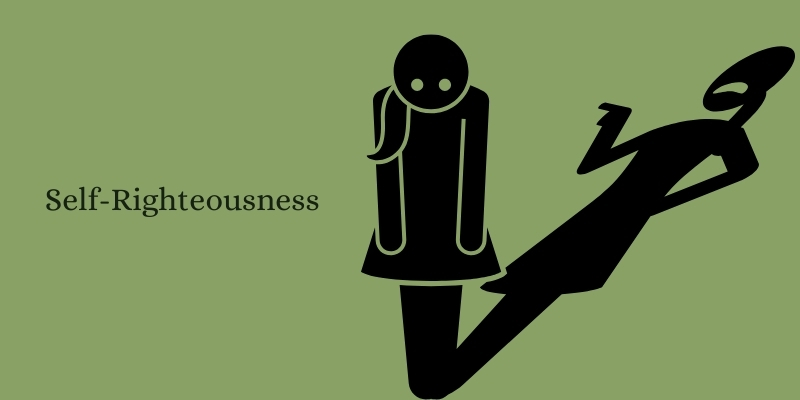
Repressed anger can also show up as moral superiority. Instead of expressing anger, individuals might channel it into judging others’ behavior or choices.
This self-righteousness serves as a coping mechanism to feel justified or in control. For instance, a person might feel anger toward a colleague but instead criticize their work ethic or personal habits to mask their frustration.
This approach deflects attention from their own suppressed feelings while maintaining a façade of composure.
5. Passive-Aggressiveness
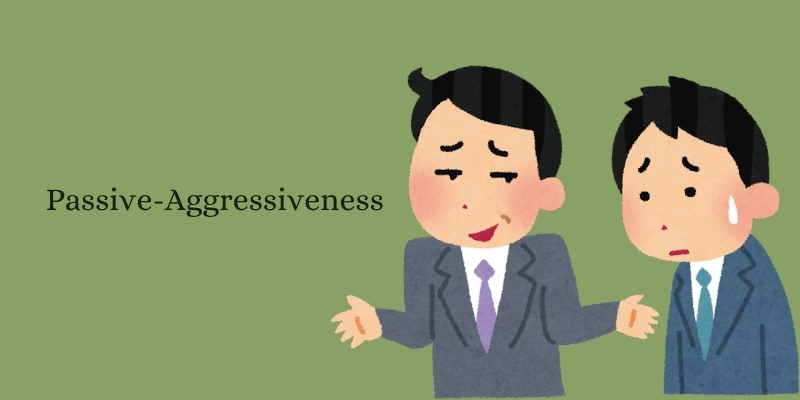
One of the most recognizable symptoms of repressed anger is passive-aggressiveness. Instead of openly addressing issues, individuals might use indirect methods like sarcasm, silent treatment, or subtle jabs to express their displeasure.
For example, they might agree to help with a task but do it poorly to convey their frustration.
Passive-aggressive behavior often arises because the individual feels unable or unwilling to confront their anger head-on, leading to strained interactions and misunderstandings.
Understanding these symptoms is the first step in addressing repressed anger. By acknowledging these behaviors, individuals can seek healthier ways to process and express their emotions, ultimately improving their relationships and mental health.
The Negative Side of Repressed Anger
Repressed anger can significantly harm both physical and mental health. When bottled up and left unaddressed, anger can lead to a cascade of negative effects, severely impacting overall well-being and quality of life.
This unexpressed emotion is linked to a range of health and behavioral challenges, including:
- High blood pressure
- Insomnia
- Chronic stress
- Increased risk of chronic illnesses
- Impulsive or destructive behaviors, such as substance abuse
- Heart attack
- Stroke
- Emotional numbness
- Apathy
- Low self-esteem
Repressed anger acts like a silent toxin, gradually eroding mental resilience and physical vitality. Without a healthy outlet for expression, it can create a cycle of harm, especially for individuals who experience anger frequently but suppress it.
Addressing and managing this hidden emotion is essential to improving overall health.
How to Release Repressed Anger (Effective Coping Strategies)
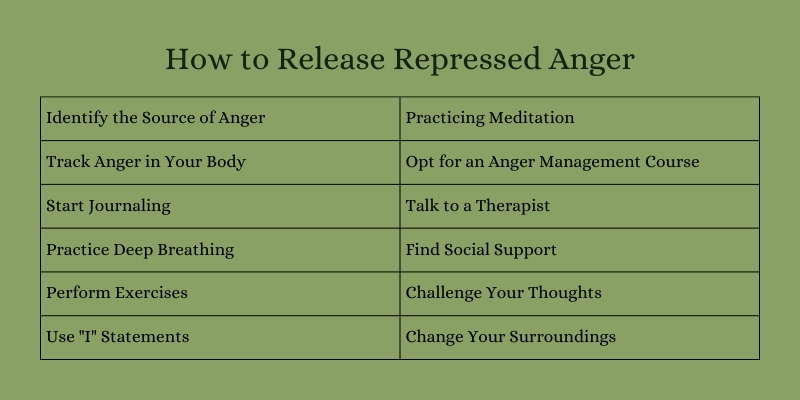
Repressed anger, if left unaddressed, can disrupt emotional well-being and lead to serious health problems.
Releasing this pent-up emotion is vital to achieving mental clarity, improving relationships, and maintaining overall health.
Employing effective strategies to manage and release anger can help individuals regain control of their emotions and create a healthier mindset.
Below are practical methods to help release repressed anger and deal with emotional challenges effectively.
1. Identify the Source of Anger
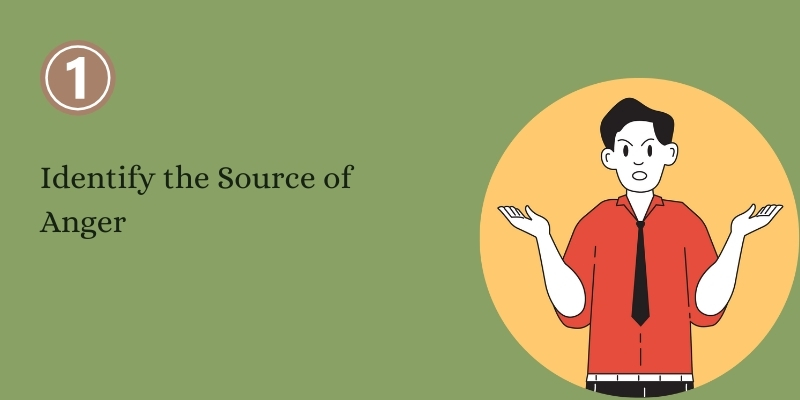
Understanding the root cause of anger is the first step toward resolution. Repressed anger often stems from past events, unresolved conflicts, or unmet needs.
Reflecting on situations that trigger anger can offer clarity and help pinpoint its origin. Once identified, you can address the underlying issues, promoting emotional healing.
2. Track Anger in Your Body

Repressed anger often manifests as physical tension in the body. Pay attention to signs such as tight shoulders, clenched jaws, or an upset stomach.
Notice these cues to become more attuned to your emotional state. Practicing mindfulness can help release this physical tension, reducing the intensity of the anger.
3. Start Journaling
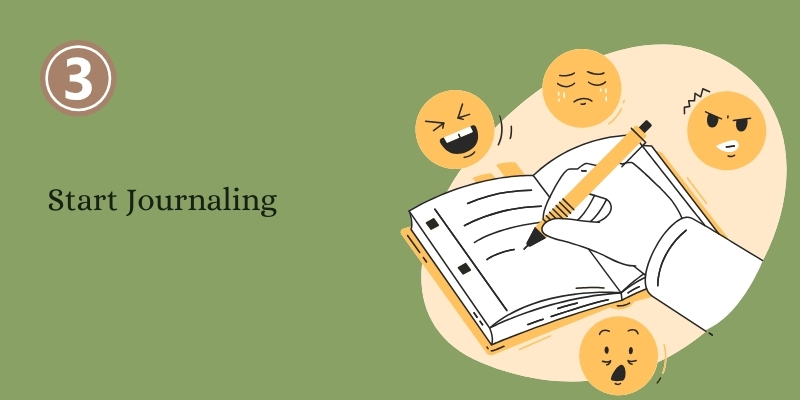
Journaling is a therapeutic way to express bottled-up feelings. Writing about your anger allows you to explore its origins and understand recurring patterns. This practice provides a safe space to process emotions without fear of judgment.
Over time, journaling can help you gain a clearer perspective and develop healthier ways to manage anger.
4. Practice Deep Breathing
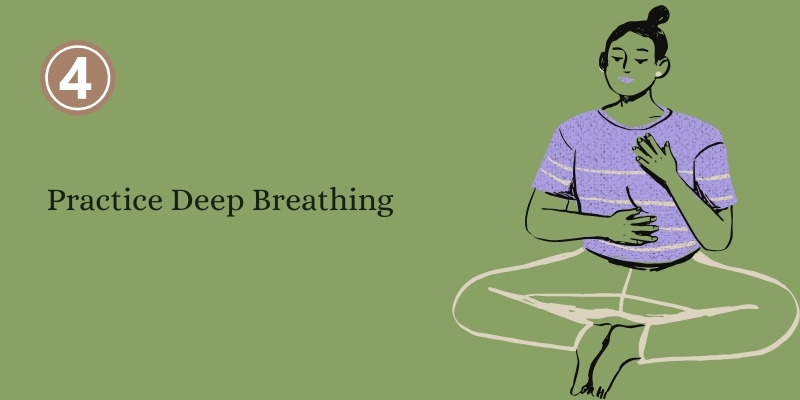
Deep breathing exercises calm the nervous system and reduce stress levels. Taking slow, deliberate breaths can help you regain composure when anger arises.
Techniques like diaphragmatic or box breathing are particularly effective. Regular practice can help you handle anger-inducing situations.
5. Perform Exercises

Physical activity is an excellent outlet for releasing built-up anger. Exercise triggers the release of endorphins, which elevate mood and reduce stress.
Activities such as running, yoga, or even hitting a punching bag can help channel anger into positive movement, leaving you feeling more grounded.
6. Use “I” Statements
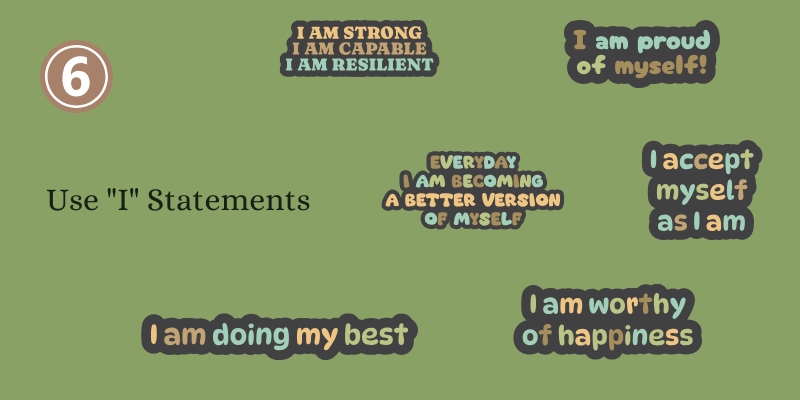
Using “I” statements is a constructive way to express anger without placing blame. For example, saying, “I feel frustrated when this happens,” instead of, “You always make me angry,” shifts the focus to your feelings.
This approach encourages open communication and helps resolve conflicts more effectively.
7. Practicing Meditation

Meditation promotes self-awareness and emotional regulation. By incorporating mindfulness practices into your daily routine, you can observe anger without judgment and let it pass without escalating.
Guided meditations specifically designed for anger management can be especially helpful in cultivating inner peace.
8. Opt for an Anger Management Course
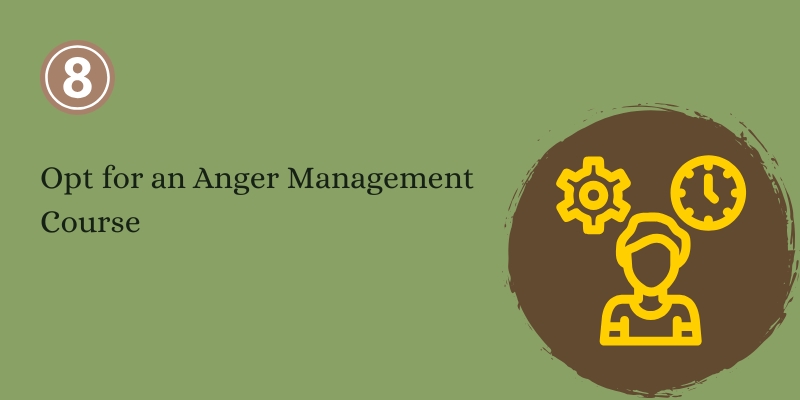
Professional guidance can make a difference for those struggling to manage repressed anger independently.
Anger management classes provide structured strategies for identifying triggers, releasing anger constructively, and improving overall emotional intelligence. These courses can lead to lasting change and healthier interpersonal relationships.
9. Talk to a Therapist
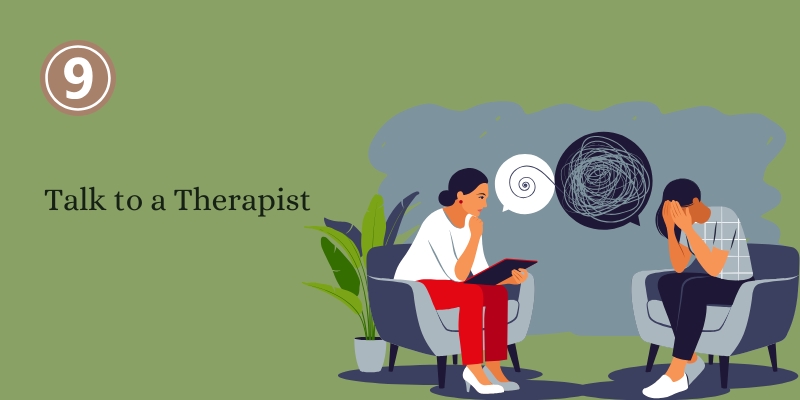
Speaking with a therapist is one of the most effective ways to address repressed anger. Therapists provide a safe and non-judgmental space to explore deep-seated emotions and identify their origins.
They use evidence-based techniques like cognitive-behavioral therapy (CBT) to help you reframe your thoughts and develop healthy coping mechanisms. A therapist can also guide you in recognizing patterns of repressed anger through anger assessment and breaking free from cycles of emotional suppression. Regular therapy sessions can significantly enhance self-awareness and emotional health.
10. Find Social Support

Social support is vital when dealing with repressed anger. Talking with trusted friends, family members, or support groups can provide emotional relief and valuable insights.
Sharing your feelings with others helps validate your emotions and reminds you that you’re not alone.
Support groups tailored to anger management offer a sense of community and practical advice from individuals with similar experiences. This collective understanding can be a powerful tool for emotional healing.
11. Challenge Your Thoughts
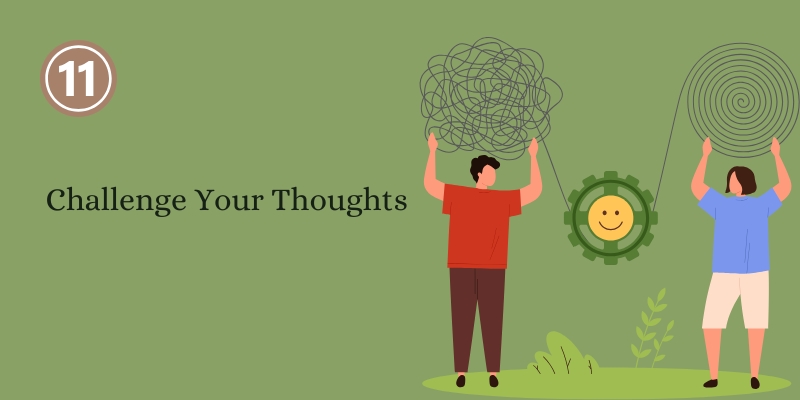
Repressed anger often stems from negative thought patterns or unresolved conflicts. Challenging these thoughts involves examining their validity and reframing them into healthier perspectives.
For example, if you feel angry because you think others don’t value you, ask yourself whether this belief is based on fact or assumption.
Cognitive restructuring techniques can replace irrational thoughts with constructive ones, reducing the emotional intensity of anger.
12. Change Your Surroundings

Sometimes, repressed anger is amplified by the environment you’re in. If a specific place, situation, or group of people consistently triggers your emotions, consider altering your surroundings.
This might mean spending time in calming environments, taking a break from certain relationships, or making lifestyle changes. A shift in the environment can provide fresh perspectives and create space for emotional regulation.
By implementing these strategies, you can work toward releasing repressed anger in a way that promotes emotional balance and improves overall well-being.
Frequently Asked Questions (FAQs)
Why would a person repress their anger?
A person might repress anger due to fear of conflict, societal expectations, cultural norms, or past experiences where expressing anger led to negative consequences.
How do I let go of repressed anger?
Letting go of repressed anger involves identifying its source, practicing self-awareness, expressing emotions through journaling or therapy, and adopting healthy coping strategies like meditation or exercise.
Is it healthy to repress anger?
No, repressing anger is not healthy. It can lead to physical issues like high blood pressure and mental health challenges such as anxiety, depression, or chronic stress.
What does repressed anger turn into?
Repressed anger can result as passive-aggressiveness, resentment, depression, or physical symptoms like tension and fatigue, ultimately affecting overall well-being.
Conclusion
Repressed anger is a serious issue that affects both your mental and physical health.
When anger is buried deep inside and not expressed, it builds up over time, leading to various emotional and physical consequences.
As this anger accumulates, it can manifest as anxiety, depression, chronic stress, and even physical health issues like high blood pressure or heart disease.
The key to overcoming repressed anger is to recognize it, understand its origins, and find healthy ways to release it.

